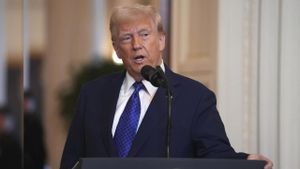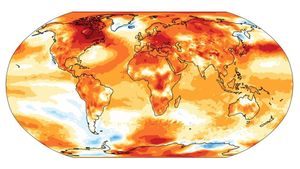The Hague, Netherlands – A coalition of nine countries has formally announced their commitment to holding Israel accountable for its actions concerning Palestine, particularly its recent military operations in Gaza. Dubbed The Hague Group, the coalition aims to enforce international law and push for the end of Israel's occupation of Palestinian territories. This initiative was unveiled on January 31, 2024, during a meeting held at The Hague, significantly increasing the legal and diplomatic pressure on Israel.
The founding nations of The Hague Group are Belize, Bolivia, Colombia, Cuba, Honduras, Malaysia, Namibia, Senegal, and South Africa. Together, these countries have underscored their dedication to implementing binding rulings from international courts and ensuring justice for Palestinian people.
The group's formation follows notable legal scrutiny of Israel, most recently highlighted by the International Court of Justice’s (ICJ) ruling against Israel's actions during the conflicts with Palestine. The ICJ's advisory opinion reaffirmed the illegality of Israeli settlements and raised serious concerns around potential genocide perpetrated against Palestinians.
"The Hague Group’s formation sends a clear message: no nation is above the law, and no crime will go unanswered," said Ronald Lamola, South Africa’s Foreign Minister, reflecting the coalition's commitment to uphold international law. The group’s statement detailed its plans to limit Israel's military capabilities, including preventing arms transfers, blocking military supply routes, and cooperating with the International Criminal Court (ICC) to enforce arrest warrants for top Israeli officials.
These intentions come after the ICC issued arrest warrants for Israeli Prime Minister Benjamin Netanyahu and former Defense Minister Yoav Gallant over alleged war crimes. The warrants were issued as both officials are alleged to have targeted civilians and used starvation as methods of warfare during the Israel-Hamas conflict. The coalition's actions represent not just legal maneuvers but also signify broader geopolitical shifts, particularly among countries of the Global South as they rally against perceived Western imperialism.
The announcement also aligns with recent events where several nations have taken principled stances against Israel. Notably, nations like South Africa have previously accused Israel of genocide at the ICJ, and several members of The Hague Group have publicly denounced military and economic ties to Israel, pledging to cut off support where military actions risk violating international statutes.
Past actions by countries within the coalition reinforce their resolve. For example, South Africa's government has faced domestic and international backlash after labeling Israeli actions as genocidal, yet the government's stance has only grown firmer. Namibia has also refused to allow vessels carrying military cargo to dock, and Colombia has expelled its Israeli ambassador—all significant gestures of support for Palestine.
Palestinians have suffered tremendously during the current conflict, with local health authorities reporting nearly 47,000 deaths since the onset of the Israeli offensive on Gaza on October 7, 2023. The toll has been particularly devastating among women and children, prompting the national and international outrage over Israel's military actions.
Responding to these crises, The Hague Group’s statement articulated their commitment to uphold principles of humanitarian law and international human rights, directly challenging the perception of Israel as operating with impunity. The coalition is calling for effective measures to be taken by all nations to end Israel's occupation and to halt any military or political support enabling what they describe as systematic violations of international law.
Prime Minister Anwar Ibrahim of Malaysia, speaking on behalf of the coalition, emphasized, "Israel’s violations go beyond the mass murder and persecution of Palestinians. They strike at the very foundations of international law, which the global community has a duty to defend." His statement resonates with advocates for Palestinian rights who have been demanding the international community take firmer action against Israel's sustained aggression.
The coalition's establishment is largely seen as part of a larger movement among developing nations to assert their voices on the global stage, marking a shift from traditional alliances. Many believe this could lead to stronger solidarity among countries advocating for justice and human rights initiatives worldwide. The galvanization of such groups is often viewed through the lens of historical anti-colonial struggles, linking contemporary actions against Israel with past movements against apartheid and imperialism.
While the actions outlined by the coalition may seem modest, they represent significant multilateral diplomatic efforts aimed at confronting Israel's policies and actions. Observers suggest this could build momentum for larger, coordinated responses addressing the Israeli-Palestinian conflict and could shape how international law is applied moving forward.
It remains to be seen how Israel will respond to these developments. Previous comments made by Prime Minister Netanyahu dismissing international court rulings as biased signal defiance rather than compliance. He has labeled the Jewish presence as non-occupying, claiming historical and religious ties to the land. Nonetheless, the collective actions of The Hague Group could slowly reshape negotiations and enforce the rule of international law surrounding this protracted conflict.
On the world stage, the spirit of internationalism is rekindled, reflective of previous epochs marked by anti-imperialist struggles, with hopes for peace and justice at the forefront. The formation of The Hague Group marks just the beginning of renewed collective action meant to uphold human rights and international laws, particularly for the voiceless populations of Palestine.



